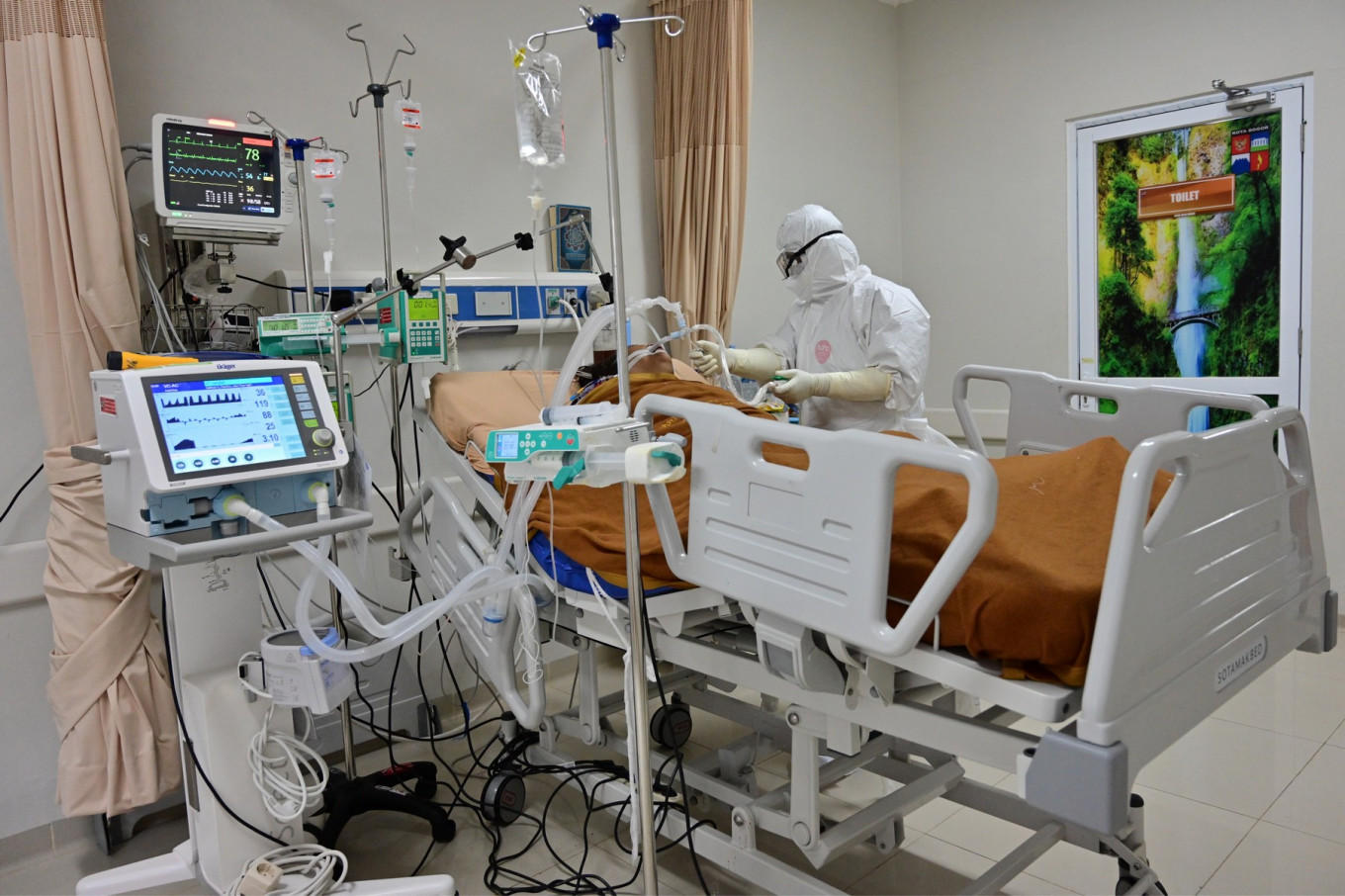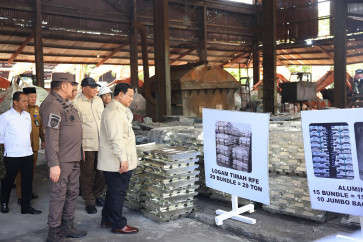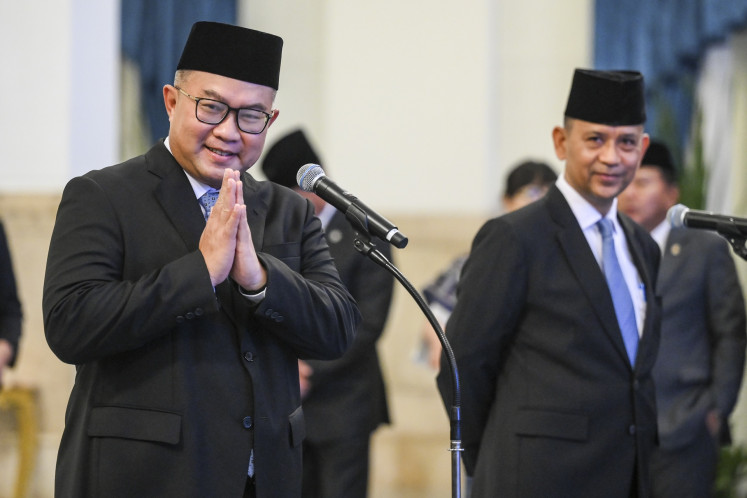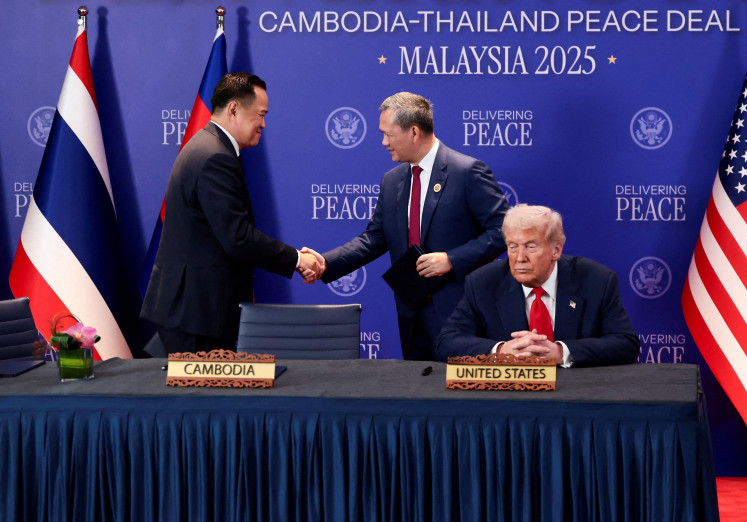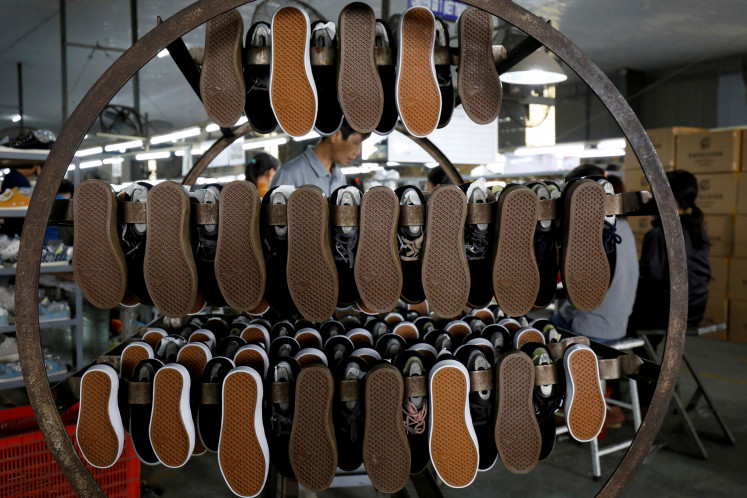Popular Reads
Top Results
Can't find what you're looking for?
View all search resultsPopular Reads
Top Results
Can't find what you're looking for?
View all search resultsGovt touts convalescent plasma as COVID-19 therapy
The government recently kicked off a national campaign to encourage COVID-19 survivors to donate their convalescent plasma for patients, despite other countries having halted the treatment following undesired results.
Change text size
Gift Premium Articles
to Anyone
T
he government recently kicked off a national campaign to encourage COVID-19 survivors to donate their convalescent plasma for patients, as clinical trials are ongoing in Indonesia, despite other countries having halted their trials following undesired results.
Coordinating Human Development and Culture Minister Muhadjir Effendy cited a preliminary study by Saiful Anwar Regional General Hospital in Malang, East Java, which found patients with severe cases who received the experimental treatment had a 100 percent rate of recovery and critical patients had an 85 percent rate of recovery.
Without disclosing further details on the study, Muhadjir said "the preliminary study can be used to predict the use of convalescent plasma for COVID-19 recovery as very meaningful".
But clinical trials abroad, as well as experts at home -- both involved and not involved in local trials -- have rather doubted the therapy's effectiveness in critical cases.
Convalescent plasma therapy uses blood from COVID-19 survivors that is expected to contain enough antibodies to help fight off the virus. The blood goes through certain processes, leaving behind a yellow-colored liquid that is given to patients.
The therapy, which appears to have gained traction in Indonesia and even outside trial settings, might depend on whether the donors had enough specific neutralizing antibodies -- not just any other antibodies. Neutralizing antibodies are those capable of binding the virus, preventing it from entering the hosts' cells. The higher the antibody levels and the more severe the illness suffered by these survivors, the better their blood is likely to be for treating others.
Read also: Indonesia begins large-scale trials of COVID-19 blood plasma therapy
The timing for having this treatment should also be right -- before moderate and severe symptoms set in and soon after the onset of illness, said experts who were referring to various foreign studies, either those that were halted due to various reasons or completed, as well as ongoing local trials.
"Not many countries' [trials] are still underway. Others, like India, have halted them [...] In Europe, some have been halted. Maybe only 12 out of 30 trials are still underway [across the world],” David Handojo Muljono from Eijkman Institute, who is involved in local trials, told a webinar on Saturday.
“China generally no longer has patients. Neighboring countries don't have as many patients as we do.”
Indonesia rolled out multicenter trials on convalescent plasma as an additional therapy in September, involving dozens of hospitals and expecting to recruit some 364 COVID-19 patients in the following months. This means some subjects are given convalescent plasma in addition to the standard of care, while the others are only given the standard of care.
David's team is still analyzing its interim result data, with the number of subjects fewer than the targeted number of participants. He said he could not disclose further details.
International trial REMAP-CAP on moderate and severe cases also announced recently it had paused enrolment of critically ill patients after no benefit was found, Reuters reported.
Read also: Red Cross chief Kalla asks regional branches to collect convalescent plasma
In Indonesia, outside the clinical trial setting, a team of doctors conducting ethical and clinical deliberations can also recommend patients resort to the therapy. Some patients and families have also reportedly requested it themselves.
Clinical pathologist Teguh Triyono from Gadjah Mada University and Sardjito Hospital in Yogyakarta, who is also involved in local trials, said that amid the trending use of convalescent plasma, it was important to note that the therapy was not a standard but only an additional treatment.
Not just anybody can be a donor or recipient, he said, highlighting the importance of having a standardized practice -- otherwise it would only be risky for the patients.
“We should be wise [...] Indonesia's trial is not yet final, but we can't put sky-high hopes on [convalescent plasma] fixing the problems,” he said.
What is crucial is to measure the amount of donors' neutralizing antibodies, according to Teguh, but the testing to do this was not common in Indonesia and required advanced labs and workers.
Read also: Convalescent plasma: What you need to know
Arifin, an internist involved in the trials in Moewardi Hospital in Central Java's Surakarta, said it was a challenge to find donors with the desired antibody levels. His hospital will only use blood with high amounts of antibodies.
“Otherwise we fear it won't be able to kill the virus in the patients -- it's like sending off 10 people to fight 1,000 enemies," he said. "I once performed a screening of 17 potential donors; only one was eligible.”
Donors with mild to no symptoms usually do not have high levels of antibodies, so chances are better with plasma donations from more severely ill donors, but these survivors could still commonly experience symptoms after testing negative -- preventing them from donating.
Moewardi Hospital pulmonologist Reviono said that based on his experience, convalescent plasma had little to no benefit on critical cases and might not be effective enough for severe cases, while moderate cases generally had high recovery rates even without the therapy.
“For me personally it's not a mainstay therapy; it’s not yet a solution,” he said.

